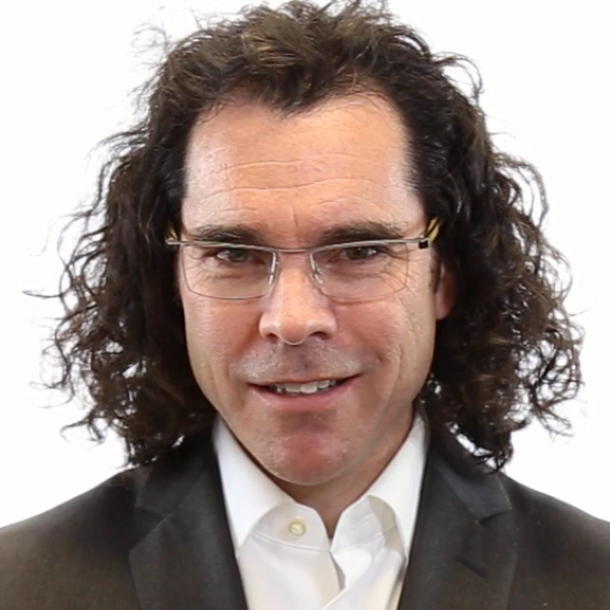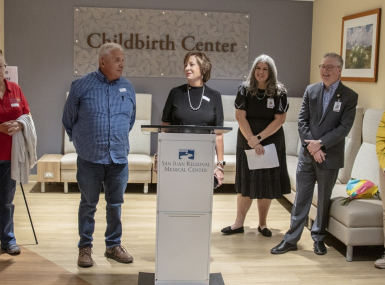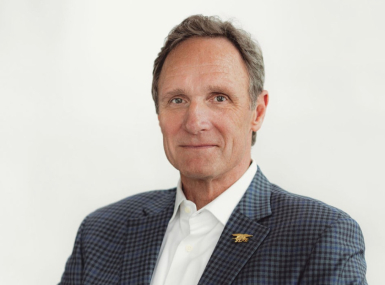Life’s Not Fair: Get Used to It
Author

Tim Rahschulte, Ph.D.
Upcoming Events
Related News

Many life lessons are simple truisms that we learned as children and carry with us throughout our adult lives. One of the earliest and truest life lessons has to be “life’s not fair.” How many times did you hear that growing up? It was likely early in life that you realized just how true that short statement is. The fact that life’s not fair was certainly evident by the time you were 3 or 4 years of age (or maybe a lot earlier, if you have siblings). Although it’s been taught to us from an early age, we may still struggle with this lesson from time to time.
When we’re born, we all fall somewhere along the “fairness continuum.” Some are born into fortune, some into immediate fame, others into opposite and extreme conditions and still others somewhere between the extremes. We have no choice about the demographics or socioeconomic situations that we’re born into. Although we may have limited choice at birth and during the immediate years that follow, as we get older, our choices increase. In particular, how we choose to view the fairness or unfairness of life changes.
A great number of people have squandered the advantages they were born into. And a great number of people have overcome the extreme conditions they were born into. We learn, sooner or later, that life and its fairness are a state of mind. The most productive people and all great leaders know this. They don’t dwell on the fact that life’s not fair or feel victimized because of it. Rather, they realize that any effort to complain and blame does little to address the underlying issue, which is how to overcome the reality of fairness to realize greatness.
Any effort to simply complain and blame is the path of least resistance and is what a lot of people choose, unfortunately. Choosing to dwell on an unfair situation comes at a major opportunity cost of your effort, time and capability. It’s your choice to decide what to do with the world as you find it. We all know from experience that we’ll find the world unfair from time to time or maybe even quite often. What will you do? What do you do today? What have you done in the past?
This is how a senior vice president at a supply-chain logistics company explained to me her perspective on life: “Life is really all about what happens to you and how you then react. What happens to you is about 10 percent of life. Ninety percent is how you then react to it. That is what you have control of and how you react is based upon your past experience and those experiences — good, bad, indifferent — are what makes your 90 percent stronger moving forward.”
What she is referring to here is a mindset of resilience — the ability of a leader to recover from difficulties and setbacks. All leaders experience setbacks, roadblocks and challenges; it just comes with the job. The best leaders realize setbacks will occur because life’s not fair, but they are not willing to accept failure because of them. They absorb the impacts, reflect on what went wrong and what pushes against them and their effort to progress, adjust as needed and err on the side of positive action to gain forward momentum.
You cannot control every situation you encounter, but you can control your imagined future, mindset and subsequent choices. Your imagined future — that which is possible every day and every moment of every day — will affect your success and enjoyment in life and leadership. And the choices you make will precede the actions you take. The best leaders spend their time on what they can do, rather than dwelling on any limiting factors, conditions or abilities that highlight what they can’t do. This was a reminder provided by Cynthia Trudell, the chief human resources officer at PepsiCo, who said: “You are who you are. Be that and figure out how that is important to others.”
You can’t be who you aren’t. It’s for this reason Oscar Wilde said: “Be yourself. Everyone else is taken.” We learned a similar lesson from Linda Betz, the chief information security officer at The Travelers Companies, who said, “I play my game. I focus on what I am good at.” To be most successful, you’ve got to leverage your strengths.
If you’re like most people, you have created lists of your strengths and weaknesses a time or two (or 12) at varying points throughout your life and career. For a long time, consultants, coaches and psychologists recommended placing focus on improving weaknesses. However, the most successful among us do just the opposite: they focus on their strengths to the point of trying to make them even stronger. The best professional running backs in the National Football League don’t practice tackling to be better as linebackers or throwing in an effort to become better quarterbacks. The best pitchers in Major League Baseball don’t take extra batting practice. The best leaders do the same; they don’t focus on who they’re not and what they can’t do. Those who are the best (the very best) focus on their core strengths and work to exploit those strengths for their own gain and in support of their team to accomplish shared goals.
Situations will continue to change. That’s something you cannot control. When faced with challenges, choose your own way by focusing on a positive mindset and leveraging your strengths to reach your envisioned future state.
What will you do with the world as you find it? It won’t always be fair. You’ll be faced with difficult changes in your industry and personal challenges to overcome. You’ll inherit weak teams. You’ll experience less-than-good bosses. You’ll be forced to participate in company politics. You’ll put in incredible amounts of work that’ll go unnoticed and might even get falsely credited to other individuals. There may also be the occasion that “fairness” will be weighted in your favor. What will you do? Will you allow it to paralyze you and limit you to simply follow the path of least resistance? Or will you change your mind about fairness and tackle the issues head on? It’s true that life’s not fair. It’s also true that you choose your path. How will you choose?

Attachments
Related News

Now I know I can adapt my communication style
San Juan County, N.M. Commissioner Terri Fortner spent her career working with people one-on-one, but she overcame hangups about online communication when the pandemic forced her onto video calls when she first took office.

County service meets a veteran’s need for purpose in Spotsylvania County, Virginia
After Drew Mullins transitioned from a high-performance lifestyle in the military, he found the environment and purpose he sought when he took office in his county.
Now I know that solid waste is complicated
Custer County, Idaho Commissioner Will Naillon says solid waste removal is "one of the things that people often take for granted until it’s their job to make sure it happens... that’s the story of being a county commissioner."